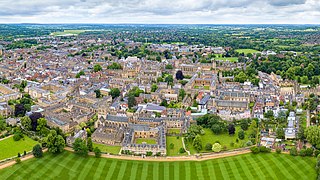
The ancient universities are British and Irish medieval universities and early modern universities founded before the year 1600. Four of these are located in Scotland, two in England, and one in Ireland. The ancient universities in Great Britain and Ireland are amongst the oldest extant universities in the world. The ancient universities in Britain are part of twenty-seven culturally significant institutions recognised by the British monarchy as privileged bodies of the United Kingdom.

Trinity College, officially The College of the Holy and Undivided Trinity of Queen Elizabeth near Dublin, is the sole constituent college of the University of Dublin, a research university in Dublin, Ireland. Queen Elizabeth I issued a royal charter for the college in 1592 as "the mother of a university" that was modelled after the collegiate universities of both Oxford and Cambridge, but unlike these affiliated institutions, only one college was ever established; as such, the designations "Trinity College" and "University of Dublin" are usually synonymous for administrative purposes.
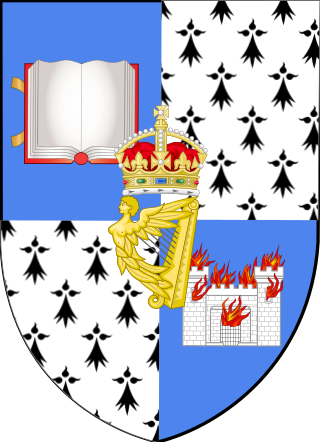
The University of Dublin, corporately designated the Chancellor, Doctors and Masters of the University of Dublin, is a university located in Dublin, Ireland. It is the degree-awarding body for Trinity College Dublin. It was founded in 1592 when Queen Elizabeth I issued a charter for Trinity College as "the mother of a university", thereby making it Ireland's oldest operating university. It was modelled after the collegiate universities of Oxford and of Cambridge, but unlike these other ancient universities, only one college was established; as such, the designations "Trinity College" and "University of Dublin" are usually synonymous for practical purposes.
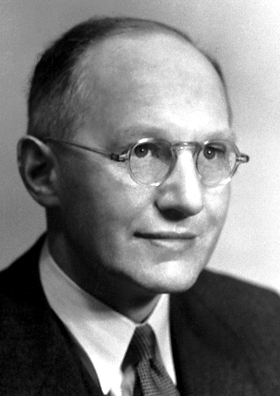
Ernest Thomas Sinton WaltonMRIA was an Irish physicist and Nobel laureate who first split the atom. He is best known for his work with John Cockcroft to construct one of the earliest types of particle accelerator, the Cockcroft–Walton generator. In experiments performed at Cambridge University in the early 1930s using the generator, Walton and Cockcroft became the first team to use a particle beam to transform one element to another. According to their Nobel Prize citation: "Thus, for the first time, a nuclear transmutation was produced by means entirely under human control".
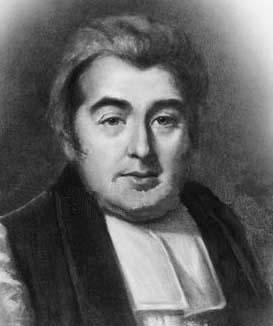
John Mortimer Brinkley was the first Royal Astronomer of Ireland and later Bishop of Cloyne. He was President of the Royal Irish Academy (1822–35), President of the Royal Astronomical Society (1831–33). He was awarded the Cunningham Medal in 1818, and the Copley Medal in 1824.
The Regius Professorships of Divinity are amongst the oldest professorships at the University of Oxford and the University of Cambridge. A third chair existed for a period at Trinity College Dublin.
In the universities of Oxford, Cambridge, and Dublin, Bachelors of Arts are promoted to the degree of Master of Arts or Master in Arts (MA) on application after six or seven years as members of the university, including years as an undergraduate. It is an academic rank indicating seniority and not an additional postgraduate qualification. Within these three universities there are in fact no postgraduate degrees which result in the postnominals 'MA'. No further examination or study is required for this promotion and it is equivalent to undergraduate degrees awarded by other universities.

The Library of Trinity College Dublin serves Trinity College. It is a legal deposit or "copyright library", under which, publishers in Ireland must deposit a copy of all their publications there, without charge. It is the only Irish library to hold such rights for works published in the United Kingdom.

Margaret McNair Stokes was an Irish Illustrator, antiquarian and writer.

John Kearney, D.D. was an Irish academic and bishop who served as the 23rd Provost of Trinity College Dublin from 1799 to 1806. He was the Church of Ireland Bishop of Ossory from 1806 to 1813.
William Robert Fearon was an Irish politician and academic. He was an independent member of Seanad Éireann from 1943 to 1959.
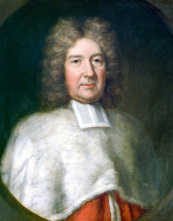
'Michael Ward (1643-1681) was an English 17th-century Anglican bishop and academic who served as the 12th Provost of Trinity College Dublin from 1675 to 1678.
Anthony Martin was an Anglo-Irish Anglican priest who served as Provost of Trinity College Dublin from 1645 to 1650. during the first half of the 17th-century.
Jane Ohlmeyer,, is a historian and academic, specialising in early modern Irish and British history. She is the Erasmus Smith's Professor of Modern History (1762) at Trinity College Dublin and Chair of the Irish Research Council, which funds frontier research across all disciplines.
James Verschoyle, LL.D. (1747–1834) was an Irish Anglican bishop.
Pascal Ducasse was a Church of Ireland Dean in the first half of the 18th century.

Charles Hawkes Todd was a medical doctor and the president of the Royal College of Surgeons in Ireland (RCSI) in 1821.
John Ryder was an Irish Anglican priest in the 18th-century.
Ezechiel Webbe was an Anglican priest in Ireland at the end of 17th and the beginning of the 18th centuries.
William Gowan Todd (1820–1877) was a nineteenth-century Anglo-Irish author and cleric. In the later years of his life he founded and managed St. Mary's Orphanage, Blackheath, England, where he died on 24 July 1877.
This page is based on this
Wikipedia article Text is available under the
CC BY-SA 4.0 license; additional terms may apply.
Images, videos and audio are available under their respective licenses.









